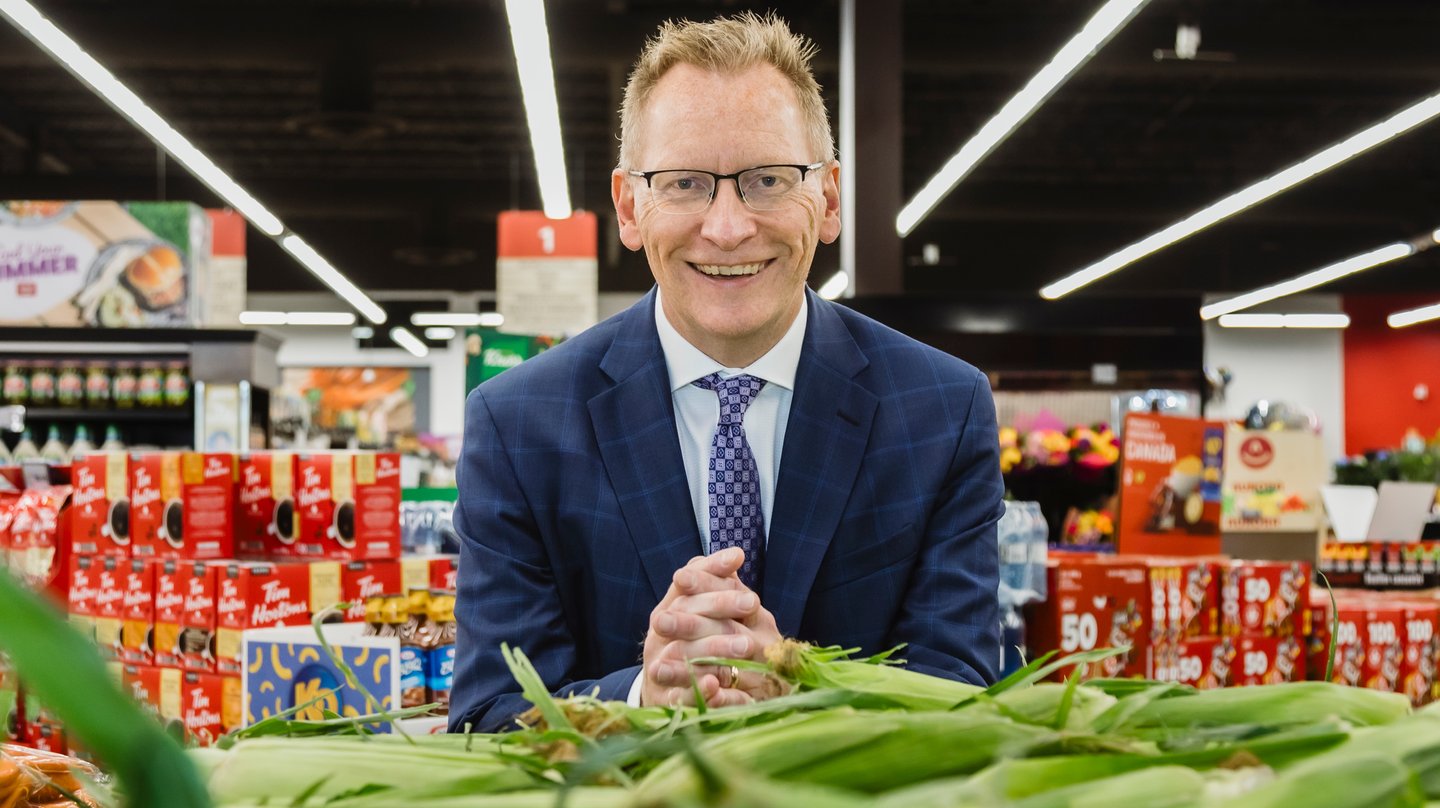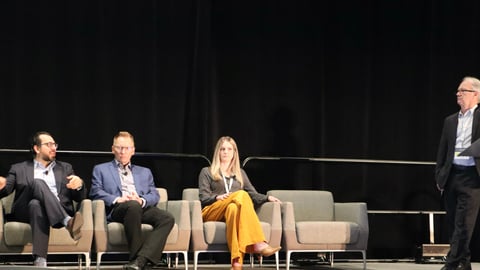CFIG’s new chief Ron Welke on what’s ahead for the organization
On Aug. 1, Ron Welke stepped up to the job of president and CEO of the Canadian Federation of Independent Grocers (CFIG), taking the reins from a retiring Tom Shurrie. No stranger to the association— which is a voice for thousands of indie grocers across the country—Welke served as a CFIG board member from 2013 to 2022, including two years as chair. In his previous life, he also spent more than 32 years at Federated Co-operatives Limited (FCL), most recently as its associate vice-president of food where he led the Co-op’s food and independent businesses. Canadian Grocer recently caught up with Welke to find out how he’s settling into his new gig, what’s ahead for CFIG and more. The interview has been edited for length and clarity.
What attracted you to the role?
A couple things. First, CFIG is a purpose-driven organization. It does some great advocacy work and we have this fantastic network of independent grocers. So, that’s primarily what attracted me to the role. And, I’ve had the opportunity to meet so many great leaders across the industry during my time on the board of CFIG, whether that’s our independent grocers [or], of course, the associate members, who are leaders in the industry. Certainly, my experience at FCL has been very valuable; I’ve been fortunate to learn from a lot of great leaders there and my first-hand experience being a retailer helps with my new role and understanding the needs of retailers.
READ: CFIG’s incoming chair Erin Higdon is passionate about the grocery industry
What are your observations about the state of the grocery industry right now?
What are the challenges and opportunities? I would say the challenge that everybody’s been talking about for the last 18 months or so is inflation. You’ve got inflation in the food business, in general, but both consumers and businesses are facing all kinds of inflationary pressures. So, on the consumer side, it’s really important that grocers understand the saving strategies consumers are using and that they have some strategies in place to address this and make sure they’re competitive in the marketplace. I’d say the other challenge facing grocers is inflationary pressures on retail operating costs, including labour costs, energy costs, insurance as well as capital costs for investments such as building new stores, renovations and new equipment. All of these are also under some pressure from inflationary costs. So, operational efficiencies need to be a focus for grocers and that can be through the use of technology or through best practices.
[Grocers] have to get sharper in terms of operations to manage those costs and manage the pressure on their margins. But, having said all that, I think there are still lots of opportunities to grow the business. Consumers are willing to pay if they’re getting great value, great service. They may be switching their buying habits, eating out a little less, but they still want to have great meals with their family and friends. That’s where grocers can lean in and take advantage of that.
With competitive threats coming from all directions, how should independents respond?
It’s not new, but I think the best strategy is to focus on their strengths. Generally, independents don’t have the scale to offer the lowest prices or have some of the operational efficiencies the larger national and international grocers have, so they need to be mindful of their pricing and they need to get sharper on operations. But, where they need to compete is on differentiation—this is where they can lead and be better in terms of service, quality, specialized assortment, local products and community involvement. Those things have been the strength of independent grocers, so it’s about doubling down on those things to compete.
What will be your priorities over the next 12 months or so?
It’s a fairly simple answer, maybe not simple work, but really listening to the membership and all the stakeholders and refining CFIG’s strategic positioning to meet the needs of our members. We’re going to do some work on that throughout the next year. I want to listen [and] get a better understand - ing of what their priorities are to make sure we’re focusing on the right things.
READ: CFIG’s Tom Shurrie and FCL’s Ron Welke on championing independents
There’s been much progress on the grocery code of conduct. What’s next on that front?
And while it’s not a cure for all the industry’s challenges, how will the code make things better for independents? Well, I want to start by thanking Gary Sands, our vice-president of public policy and advocacy, for his tireless effort representing independent grocers and working with stakeholders across the industry to get where we are today. In terms of what’s coming next, the code board has started the process of hiring an adjudicator. There’s a lot of work to get that in place and get the code operational by June 2025 so, CFIG, led by Gary as our board representative, will be supporting that. And we’ll also be doing a lot of education—educating our members about what the code is and what it isn’t, and making sure they understand how they need to comply with the code, but also how to get the most benefits from the code.
How will it make things better for independents? I would say the code won’t level the playing field, but it will help stabilize the playing field and that will allow producers and manufacturers some certainty in their relationships with grocers and allow them to invest in innovation. If we do it right, the code should foster an environment where the talented people in our industry can focus on growth and innovation, instead of fines and fees and administration; that should help independents as well as the entire industry.
You’ve spent your entire career in grocery. What advice do you have for those considering a career in this industry?
I’d say if you like a fast-paced environment, if you like making a difference in communities and work - ing with great people, then grocery is a great place to invest in a career.
What will define “success” for you as head of CFIG?
If we can continue to foster the development of leaders in the industry, I would say that would be a good measure of success. Also, if we can play a leadership role in building a more collaborative industry and help ensure we’ve got a vibrant marketplace for independents—those are the three areas [that will define success] for me.
This article was first published in Canadian Grocer’s September/October 2024 issue.




